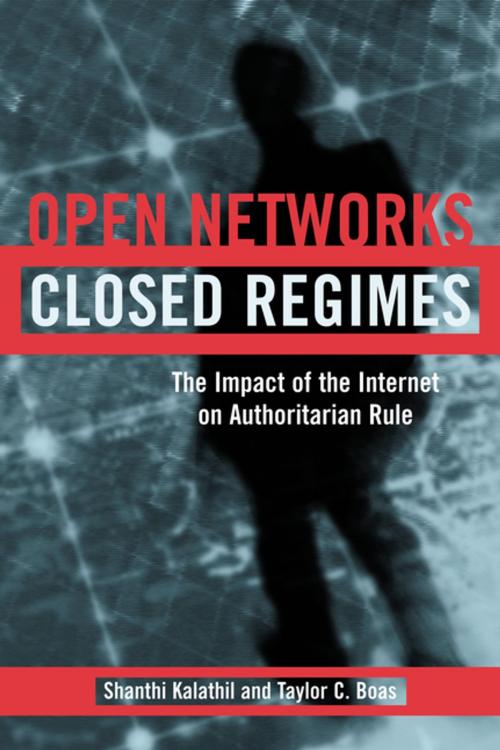Open Networks, Closed Regimes
The Impact of the Internet on Authoritarian Rule
Nonfiction, Social & Cultural Studies, Political Science, Government, Public Policy, Computers| Author: | Shanthi Kalathil, Taylor C. Boas | ISBN: | 9780870033315 |
| Publisher: | Brookings Institution Press | Publication: | November 1, 2010 |
| Imprint: | Carnegie Endowment for Int'l Peace | Language: | English |
| Author: | Shanthi Kalathil, Taylor C. Boas |
| ISBN: | 9780870033315 |
| Publisher: | Brookings Institution Press |
| Publication: | November 1, 2010 |
| Imprint: | Carnegie Endowment for Int'l Peace |
| Language: | English |
As the Internet diffuses across the globe, many have come to believe that the technology poses an insurmountable threat to authoritarian rule. Grounded in the Internet's early libertarian culture and predicated on anecdotes pulled from diverse political climates, this conventional wisdom has informed the views of policymakers, business leaders, and media pundits alike. Yet few studies have sought to systematically analyze the exact ways in which Internet use may lay the basis for political change. In O pen Networks, Closed Regimes, the authors take a comprehensive look at how a broad range of societal and political actors in eight authoritarian and semi-authoritarian countries employ the Internet. Based on methodical assessment of evidence from these cases-China, Cuba, Singapore, Vietnam, Burma, the United Arab Emirates, Saudi Arabia, and Egypt-the study contends that the Internet is not necessarily a threat to authoritarian regimes.
As the Internet diffuses across the globe, many have come to believe that the technology poses an insurmountable threat to authoritarian rule. Grounded in the Internet's early libertarian culture and predicated on anecdotes pulled from diverse political climates, this conventional wisdom has informed the views of policymakers, business leaders, and media pundits alike. Yet few studies have sought to systematically analyze the exact ways in which Internet use may lay the basis for political change. In O pen Networks, Closed Regimes, the authors take a comprehensive look at how a broad range of societal and political actors in eight authoritarian and semi-authoritarian countries employ the Internet. Based on methodical assessment of evidence from these cases-China, Cuba, Singapore, Vietnam, Burma, the United Arab Emirates, Saudi Arabia, and Egypt-the study contends that the Internet is not necessarily a threat to authoritarian regimes.















